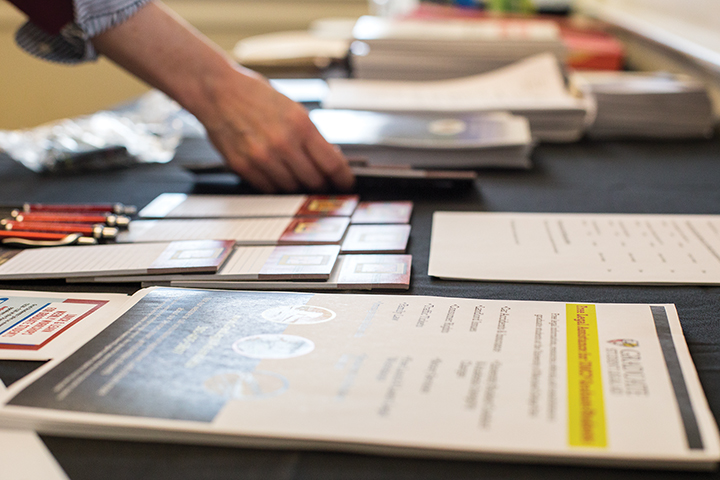It’s a prevalent crime in America, happening to millions of people every year, yet most victims don’t even know they have been targeted until it is too late, according to the University of Maryland Graduate Student Legal Aid Office.
The office held a workshop Tuesday in Stamp Student Union’s Pyon Su Room to address the threat: identity theft. Officials said they wanted to educate students on preventing information breaches rather than on how to react after they occur.
Jeff Karberg, an administrator of the Maryland Attorney General’s Identity Theft Unit, spoke to graduate students about the issue and its potentially devastating effects.
“It could be anything from the inconvenience of replacing your credit card to being denied credit for a new home,” Karberg said. “You can’t ever have an identity thief un-know your information, so it’s always out there once it happens.”
There are many types of identity theft, including medical identity fraud, tax fraud, criminal identity theft and Social Security theft, Karberg said.
Identity thieves obtain a person’s information in two main ways: “They can take it, or you can give it to them,” he said.
Karberg spoke about the ways people “give” identity thieves their private information. He said people often hand over information when the thief is someone they trust, such as a family member or friend. In another method, phishing, identity thieves pose as legitimate websites or companies that deal with personal information.
“We think of identity theft as this anonymous Internet crime,” Karberg said. “The sad thing is that a lot of it happens from people in a position to take advantage of you.”
Karberg also outlined protective steps to listeners, advising them to shred documents, use passwords and PINs, and not carry around sensitive information such as birth certificates.
Fabio Correa, an anthropology doctoral student who attended the workshop, said knowing ways to protect against identity theft is important, and he plans to make use of them because fraud is “something that happens all around.”
“I am appalled by all of the fraud going on,” Correa said. “It’s really cool to know that I can protect myself.”
Debbie Mikutsky, programs and services coordinator for the Graduate Student Legal Aid Office, said she has personal experience with the crime and attended the workshop to learn preventive measures.
“I have friends who have been victims of identity theft,” Mikutsky said. “This is critical information that everybody should [know].”
Karberg said he hopes people are aware of the dangers of identity theft, and that they know there are resources available if it happens to them.



